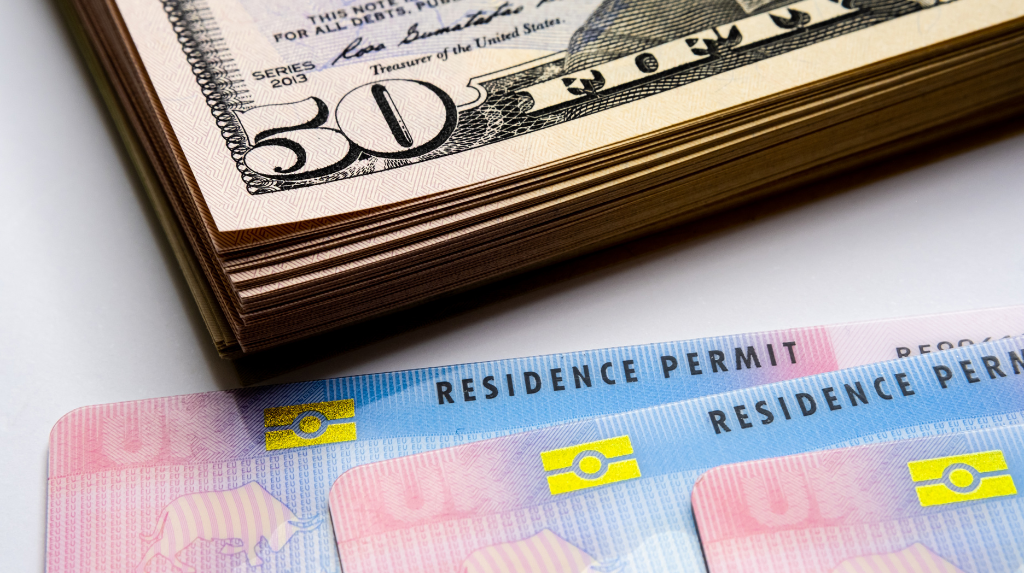If you are applying for a green card based on VAWA, it is important to show the extent of the abuse that you suffered at the hands of your U. S. citizen, resident spouse, or parent. This guide will show you how best to gather the proof you need to back up your application and increase your prospects of achievement.
Introduction to the Violence Against Women Act and the Requirements
It allows you to apply for a green card if you can show that you’ve been abused by your U.S. citizen or resident spouse or parent. Abuse under VAWA isn’t limited to physical violence; it also includes emotional abuse, psychological cruelty, control, and other mistreatment.
Ensuring Safety and Privacy for Victims
Abusers may monitor your online activities or use tracking devices so If you’re worried, get help from organizations like the National Domestic Violence Hotline or RAINN, which provide resources and assistance.
Types of Abuse Recognized by VAWA
- Physical violence
- Threats or display of weapons
- Rape or unwanted sexual contact
- Forced detention
- Forced prostitution
- Psychological abuse or harassment
Compiling Compelling Evidence
Building a strong case relies on the quality and diversity of evidence you provide to USCIS. Here are key documents and records to gather:
Police Reports and Abuser’s Arrest Records: If you called the police for domestic violence incidents, get copies of any reports made.
Police Statements
- Recordings of 911 calls can be crucial and are usually obtainable with proper identification and fees.
- Copies of restraining or protection orders against your abuser serve as strong evidence.
- Medical records of injuries from abuse can substantiate your claims. Request copies even if you didn’t reveal the cause at the time.
- Recent Medical Reports: A doctor can provide a report on any long-term injuries from past abuse.
Psychiatric or Therapeutic Records
- Summaries from your mental health provider detailing your discussions about the abuse.
- Records from a domestic violence shelter can support your case.
- Staff members can provide statements about your situation and their observations.
Declarations from Religious Leaders
- Records of harassing calls or texts from the abuser can be obtained from your phone company or via screenshots.
- Reports from school staff if a child mentioned the abuse.
- Photos of injuries or evidence of abuse should be accompanied by explanations.
- Written communications, whether threatening or apologetic, can be used as evidence.
Declarations from Witnesses
A detailed personal account of the abuse you experienced, filling in any gaps and providing a comprehensive narrative.
Building a strong VAWA case involves gathering a variety of documents and records to substantiate your claims of abuse. You don’t need every type of evidence listed here; a combination of documents, photos, reports, and statements will strengthen your case. If you feel you lack sufficient proof, seek help from a nonprofit organization or an immigration attorney specializing in VAWA cases.
Eligibility Requirements
To qualify for VAWA, applicants must meet specific criteria:
- Qualifying Relationship: The applicant must be the spouse, former spouse, child, or parent of a U.S. citizen or lawful permanent resident who has abused them.
- Residence: The applicant must reside in the U.S. at the time of filing and have lived with the abuser at some point.
- Abuser’s Status: The abuser must be a U.S. citizen or lawful permanent resident.
- Proof of Abuse: Applicants must demonstrate that they have suffered abuse, which can include physical violence or psychological harm.
- Good Moral Character: Evidence of good moral character is required, often demonstrated through letters of recommendation or community involvement
How can I track the status of my VAWA petition
To track the status of your VAWA petition, follow these steps:
Obtain Your Receipt Number:
After submitting your VAWA petition (Form I-360), you will receive a receipt notice (Form I-797C) from USCIS. This notice includes a unique 13-character receipt number that you will need to check your case status.
Use the USCIS Online Tool:
- Visit the USCIS Case Status Online page.
- Enter your receipt number without dashes. The format typically starts with three letters followed by ten numbers (e.g., EAC1234567890).
Create a USCIS Account:
For more personalized updates, consider creating an account on the USCIS website. This allows you to receive notifications about your case and view the last five actions taken on it.
Check for Updates Regularly:
Your case status may change as USCIS processes your application, so check back frequently to stay informed about any requests for additional evidence or decisions made regarding your petition.
Contact USCIS if Necessary:
If you experience delays beyond typical processing times or have concerns about your case, you can contact the USCIS Customer Service Center at 1-800-375-5283 for assistance
Following these guidelines and compiling a robust collection of evidence will enhance your chances of obtaining a VAWA green card and ensuring a safer future in the United States. For more assistance in preparing your application, consult with an experienced immigration lawyer who can guide you through the process.
How Law and Visas Can Help?
At Law and Visas, our team of expert immigration consultants is here to make your travel to the United States straightforward and successful. Whether you’re applying for a T Visa or Advance Parole (Form I-131), we handle every step—from preparing your application to gathering the required documents.
Our Immigration Consultants and Lawyers ensure that your application meets the highest standards, with no details missed. We’ll also keep you informed throughout the process, coordinating with the immigration office or embassy on your behalf.
Law and Visas has a strong record of helping clients secure the visas/permits they need to visit the United States. Call us today at +234 812 5505 986 to learn how we can assist you.





